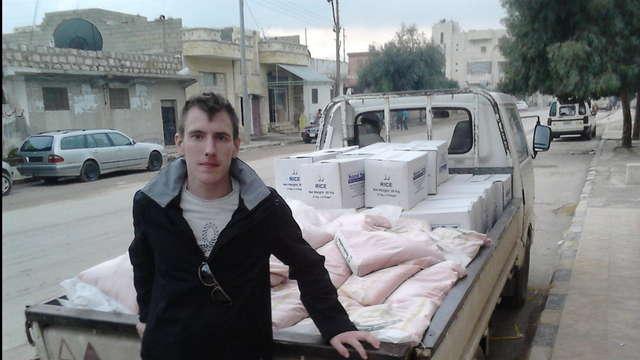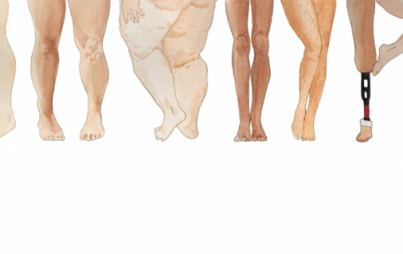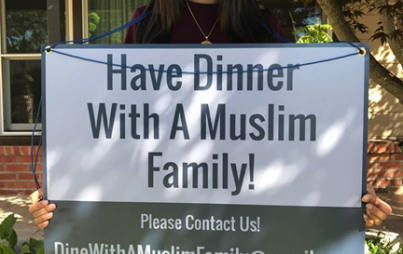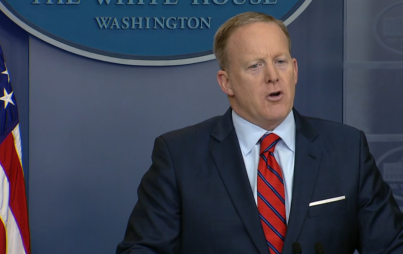
Credit: SERA
“I am obviously pretty scared to die, but the hardest part is not knowing, wondering, hoping, and wondering if I should even hope at all.”
These are the heartrending words penned by ISIS hostage Peter Kassig in a letter to his parents released on Sunday. Peter, who is only 26, now also goes by Abdul-Rahman Kassig, having converted to Islam and adopted a new name under ISIS captivity. And in ISIS’s latest horrific video depicting the brutal beheading of British citizen Alan Henning, a fellow humanitarian worker who’d quit his job as a taxi driver to help those in need in the Middle East, Kassig was identified as the terrorist organization’s next target.
Naturally, this has elicited a lot of media coverage. But despite the chilling horror of ISIS's acts and videos, we should be focusing on this inspirational Indiana man's work and story—not ISIS's propaganda of him in an orange jumpsuit.
An Inspiring Life
Kassig's story is an undoubtedly inspiring one. Having served as an Army ranger in Iraq, he went on to become an EMT and devote his energies to caring for Syrian refugees—all in his early 20s.
A 2012 CNN story featuring his work details his journey from army ranger, to college student, to humanitarian aid worker in Lebanon, describing how Kassig was putting his EMT skills to use in hospitals for Syrian refugees in Lebanon:
"I am not a doctor. I am not a nurse. But I am a guy who can clean up bandages, help clean up patients, swap out bandages, help run IVs, make people's quality of life a little bit better. This is something for me that has meaning, that has purpose."
And his reasons for devoting his life to such work?
"We each get one life and that's it. We get one shot at this and we don't get any do-overs, and for me, it was time to put up or shut up. The way I saw it, I didn't have a choice. This is what I was put here to do. I guess I am just a hopeless romantic, and I am an idealist, and I believe in hopeless causes."
The outpouring of support after the article ran inspired him to start his nonprofit Special Emergency Response and Assistance (SERA)—at the tender age of just 24. In an interview with Time, he reiterated his reasons for his path in life:
"This work is important for the message that it sends to people back home, that one of the best aspects of the American way of life is our ability to come together in the face of adversity and to stand beside those who might need a helping hand. In five years, if I can look back on all of this and say that our organization is able to truly help people, that I was able so share a little bit of hope and that I never stopped learning then I will know this all stood for something."
Kassig was captured in the Syrian city of Deir al-Zor in October of last year, doing this important work for SERA he believed in so much.
In the wake of ISIS's threat to behead Kassig, his parents have released a video addressing both their son and ISIS, pleading for mercy:
“As Muslims around the world, including our son Abdul-Rahman Kassig, celebrate Eid al-Adha, the faith and sacrifice of Ibrahim, and the mercy of Allah, we appeal to those holding our son to show the same mercy and set him free."
His mother added for his son, with the desperate hope he'd see it:
“We are so very proud of you and the work you have done to bring humanitarian aid to the Syrian people.”
His parents released Kassig’s letter, in which he writes about his fear of death and how he worries about the pain his capture has caused parents "so the world can understand why we and so many people care for him and admire him."
Honoring Human Empathy
And this is, indeed, exactly what we should be focusing on: our tremendous capacity for humanity and empathy. In this unthinkably dark time of decapitations and slaughter, as ISIS is poised to continue its rampage into the key border town of Kobani, we need to remain connected to and inspired by the work of people like Peter.
Threats against his life and the murders of James Foley, Steven Sotloff, Alan Henning and David Haines—all people who’d devoted their lives in service of those suffering in the Middle East—demonstrate the strict un-Islamic nature of this heinous terrorist group. It's a group that can only be combated by our discontinuing the circulation of its artfully crafted, hideous and chilling propaganda, and instead focusing on the lives and humanity of those the group has threatened and killed—not only in the Western world, but also in the Middle East, where in the first eight months of this year, at least 9,347 civilians were murdered, with ISIS as the primary actor.
These are all lives that demand our attention—and attention not channeled through the evil propaganda of this deadly hate group.






